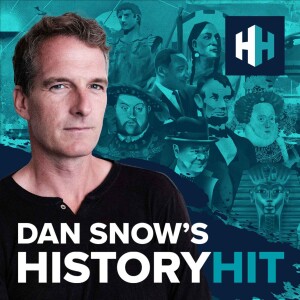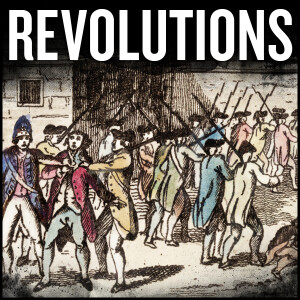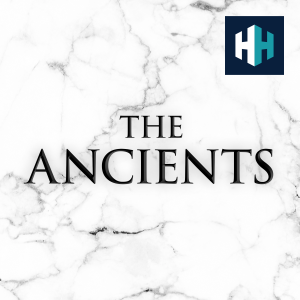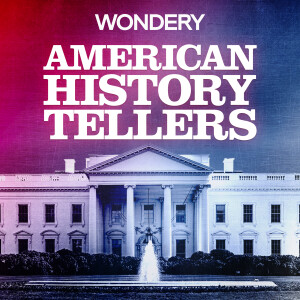

Military History Plus
https://www.militaryhistoryplus.com/feed/podcast/Episode List

S2E12 – Churchill pt 6 – WW2
In the final episode of the series, Gary and Spencer examine Churchill’s leadership from the Blitz to 1945, assessing his wartime strategy across multiple fronts. They discuss his Mediterranean focus, from the failed Greek campaign (1941) to the humiliating fall of Tobruk (1942), his controversial replacement of Auchinleck with Montgomery, and Britain’s later role in Italy, Yugoslavia, and the Greek Civil War. The episode also covers the war against Japan, including the loss of HMS Prince of Wales and Repulse, the fall of Singapore, and the challenges of the Burma campaign. The hosts delve into Britain’s strategic bombing campaign, Commando raids, and the Battle of the Atlantic, before turning to Churchill’s uneasy relationship with Stalin and the fraught negotiations over the Second Front. They conclude by exploring why Churchill lost the 1945 election, despite his central role in Britain’s victory.

S2E11 – Churchill pt 5 – 1940 and Difficult Decisions
Gary and Spencer continue their exploration of Churchill’s transformational leadership, focusing on his pivotal decisions in 1940. They analyse his response to Operation Sealion, assessing how he strengthened Britain’s defences during the Battle of Britain and established himself as a wartime leader. The discussion explores his working methods, including a notable quote on his approach to leadership. They also examine Churchill’s morale-boosting speeches and his ability to unite the country during a period of immense uncertainty. A key focus is his broader strategic thinking—despite the looming invasion threat, he controversially sent British forces to the Middle East in August 1940, prioritising long-term imperial strategy. The episode also covers Churchill’s early efforts to bring the United States into the war, laying the groundwork for what would become a critical alliance.

S2E10 – Winston Churchill pt 4 – opening months of WW2
In the fourth part of the series on Churchill and war, Gary and Spencer focus on Churchill’s dramatic return to government during the Phoney War. They analyse his role as First Lord of the Admiralty and his efforts to modernise the Royal Navy, ensuring Britain’s readiness for the looming conflict. The discussion explores Churchill’s complex relationship with Prime Minister Neville Chamberlain, highlighting their political disagreements and contrasting leadership styles. Gary and Spencer also examine the critical question of succession as Chamberlain’s premiership faltered. Who would take the helm: Churchill, with his unyielding defiance of fascism, or the more diplomatically inclined Lord Halifax? The hosts offer compelling insights into the political manoeuvring of this pivotal moment in history, setting the stage for Churchill’s ultimate rise to the role of wartime leader.

S2E9 – Winston Churchill pt 3 – the interwar era
In this third instalment on Winston Churchill and war, Gary and Spencer delve into Churchill’s leadership style, analysing it through the lens of transformative leadership. They explore his approach to decision-making, crisis management and inspiring action during turbulent times. The episode also examines Churchill’s controversial attitude towards fascist leaders Adolf Hitler and Benito Mussolini, evaluating how his views shaped his policies and public stance. Gary and Spencer discuss Churchill’s reputation during the interwar years, a period marked by political exile and criticism. They assess his warnings about Nazi Germany in the 1930s and his efforts to rebuild his credibility as a statesman. The conversation is enriched by differing perspectives: Gary offers a more critical take on Churchill, while Spencer provides a defence of his legacy, drawing personal inspiration from the man he shares a name with. This episode provides a nuanced look at Churchill’s leadership qualities and their broader implications during a time of significant global upheaval.

S2E8 – Khaki Elections – General Election special
Amid Britain's current general election, join Gary and Spencer as they delve into the compelling history of the UK's 'khaki' general elections. In this insightful podcast, they investigate four pivotal 20th-century elections that took place during or after major conflicts, shaping the nation's political landscape in profound ways. Discover how the 1900 general election was influenced by the fervour of the Second Boer War. This election saw the Conservative Party solidify its power, bolstered by a wave of imperialist sentiment and public support for the war effort. Next, they examine the 1918 general election, held in the aftermath of World War I. This election was marked by significant changes, including an expanded electorate due to new suffrage laws. The electorate, weary from the war and yearning for change, propelled Lloyd George's coalition to a decisive victory, reshaping the political scene. The 1945 general election is another focal point, occurring just after the end of World War II. Gary and Spencer explore how the Labour Party's promise of social reform and reconstruction led to a historic landslide victory, radically transforming British society and the welfare state. Finally, they investigate the 1983 general election, set against the backdrop of the Falklands War.
Create Your Podcast In Minutes
- Full-featured podcast site
- Unlimited storage and bandwidth
- Comprehensive podcast stats
- Distribute to Apple Podcasts, Spotify, and more
- Make money with your podcast












